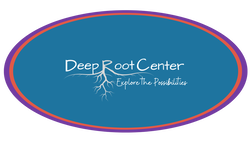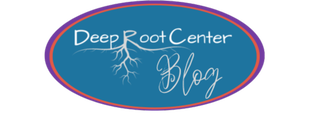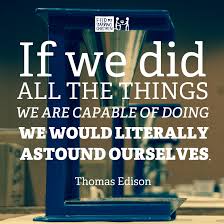 Personalized education is the basic tenet behind Deep Root Center and the other organizations within the Liberated Learners Network. I believe those simple words profess to the world that we are in the business of educating one kid at a time, in the real world, according to their individual needs and desires. But what does that really mean? We have all heard the phrases individualized and student centered education. Those pedagogies, in my opinion, are an effort to bring out each students interests within a formalized and structured classroom or school setting. The schools who utilize these philosophies, however, offer some form of coercion (albeit subtle), and are not able to sincerely look at each student as a unique being, because their internal structure is governed by the requirements set forth by the state or the administration of private learning institutions. A truly personalized education provides open options and free choice for each learner, by listening and utilizing the information gathered through multiple conversations and mentoring sessions to create a personalized learning plan. These plans often include: group classes, online classes, and one-on-one tutorials, independent research and hands on projects, and even internships or apprenticeships in the community. The beauty of this process is that the student and the mentor both understand the plan is completely organic and alive; they are both entirely willing to scrap the original, at any time, because life happens, interests change, and new experiences and explorations may expose new learning opportunities. Some students thrive in an academically demanding situation, others are looking for a relaxed ---go with the flow--- learning experience. These two contrasting styles and personalities mesh perfectly in the self-directed learning environment, because of the fluidity, malleability, and non-coercive nature of the education. Everyone understands that they have options and no one is being forced to do anything they do not want to do. The staff is never worried that one student who is engaged in a rigorous lesson will be influenced to leave the class, simply because another is sitting at the next table surrounded by his latest project and rocking out with head phones firmly attached to his ears. A personalized education simply requires an open and welcoming environment, supportive teachers and facilitators, positive relationships, mutual respect, and the intrinsic desire to learn.
0 Comments
 Imitation is the sincerest form of flattery. Is an adage uttered by countless parents during escalating sibling tempers that, as it turns out, isn't just another platitude. Imitation is, quite simply, the very fundamental basis for all learning. I find it interesting that in our society mimicry is often an anger prompting activity. I presume it is directly connected to our culturally induced national fixation on cheating and the associated feelings of unfairness. I would like to counter that idea with a bit of anthropological and anecdotal evidence. Copying behaviors, movements, and actions is the way all primates learn. In Anthropology, culture is defined, quite simply, as learned behavior. The great Jane Goodall was the first person to understand that other animals, besides humans, create and use tools, and that they have a developed culture. They learn to survive by watching and copying. The documentary, Wild Chimpanzees, which highlights a scene of a chimpanzee mother (Flo) teaching her young daughter to fish for termites is quite possibly one of my favorite films of all time. The young chimp sits and stares at her mother for a very long time. She eventually gets a blade of grass and shapes it with her teeth, just like her mother did. Then she lies on her side over an entrance hole to the termite mound leaning on one arm and holding the grass fishing pole in the other. She pokes the vegetation into the hole, and then she pulls it back out covered with squirming insects. She tries to drag the grass over her wrist and through her lips the way her mother so adeptly delivers the crunchy snack to her own pursed lips, but the termites fall off before they reach her mouth. She continues to practice and eventually manages to get a few tasty morsels before her mother moves on to the next lesson. Every time I watch this fascinating evidence of primate learning in action, I recognize the obvious delight that young chimp experiences when she is rewarded with her well deserved snack. How does this tale relate to kids? Children, to the consternation of older siblings, are little copy cat machines. They watch, they imitate, and they experiment, constantly. Everything they have learned over their entire lifetime has been the result of imitating behaviors. As a teacher/facilitator, I often find myself debating whether certain mediums are appropriate for children to use as learning tools. For example, this past week several kids decided they would like to watch America's Got Talent or some such competitive television show. I wasn't entirely clear why these kids were so attracted to this show, besides the entertainment value (one contestant on the show was a very young girl who sang - screamed like Ozzy Osborne). Later that evening two of the girls went home and proceeded to write a song. They came in the next day wearing fancy dresses and secretive smiles. They spent a few hours typing their song and then set up a stage and seating for the audience, made tickets and cardboard microphones, and proceeded with some giggling and miss starts, to perform their song. It was amazing! Why do I even spend the energy questioning, when the results are so clear, every single time? No, these girls probably won't become pop stars or famous lyricists (although one is determined to have her own YouTube channel and become a household name that way), however, they are creating experiences and developing interests, through imitation, that will provide amazing memories and learned skills they will carry with them for the remainder of their lives. This in a nutshell is self-directed learning! All Deep Root Center provided was the resources, support, and the space for mimicry that allowed these girls to shine. 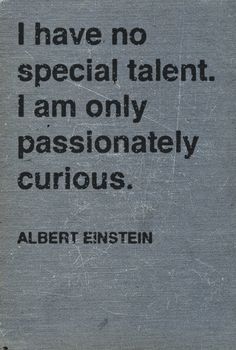 Have you ever listened to NPR, CBC or podcasts, such as This American Life and heard the hosts introduce a theme for that particular show along with an expert or two who proceed to expound on specific subjects that are either quite broad (eg. Memory or Neanderthals), or very narrow (eg. steamboats on the Mississippi between the years of 1850-1852)? Do you ever wonder who these people are and how they became the expert in their field? My personal curiosity about this phenomenon, as usual, began the thought process that has led to this blog post. And in this case, as you will discover, a fairly apropos connection has become apparent. Self-directed, intrinsic, and independent learning is motivated and driven purely by curiosity and interest, not coercive, mandatory or compulsory lessons. This is the natural inclination for all humans, whether you are two or ninety-two; because, we are, quite simply, designed to learn. People who are interested, or fascinated by a particular theme or event express a desire to explore it more closely by researching the subject or participating in the activity. Their curiosity is naturally peaked, as their investigations uncover additional layers of intrigue, which leads them to delve even deeper into the topic until they have internalized enough knowledge to start sharing their discoveries with other people. Because, it is this, the teaching, that leads to expertise and an even greater understanding of the subject. Becoming an expert on invasive plant species of the North East, 19th Century Forensic Science, or the history of bobsledding may not land you on the next edition of To the Best of Our Knowledge, however, the intense personal joy and satisfaction produced by learning and then sharing your newly acquired knowledge with a friend or student comes in a close second.  When someone is engaging in the above behaviors, we can usually agree it is most often a demand for attention. “Look at me! Look at me! Look at me! I have an important point to make and I am not going to take the time to discuss, talk, or engage in rational discourse. I am just going to rant, rave, and cause a huge disturbance in every one's life. Because my thoughts, ideas, ideology, and way of thinking is right and you are all wrong.” As you have probably realized, I am not pointing out the conduct of the typical two or three year old who pitches a fit because she wants candy at the check-out line ---- This Blog Post is a direct response to the adult nonsense that has reached astounding and epic proportions on the international, national, and local levels. Without naming individuals or circumstances, I am going to make this uncomplicated yet profound point: We must STOP rewarding bad behavior with our rapt attention! Ignore them! When we take away the power of the tantrum, they will stop or at least go away for a while, just like that two year old in the grocery store! News media covers these bullies (yes, elementary fact, anyone who demands attention through abusive behavior is nothing more than a bully) and their deplorable conduct, because we news consumers listen and respond. Simply put, they understand that loutish behavior, titillation, and sensationalism sell! In contrast, we should be actively seeking out positive narratives, the people doing amazing work, and the organizations who are making a difference; share, tweet, and comment on those stories. When the media realizes that we are engaged and paying attention to constructive, affirmative, optimistic, and empowering messages, they will be obliged to sell us more of what we ask for. The truth is: Each of us has the ability to change the world, because we all have agency and innumerable life affirming tools, both figurative and literal; one of them is to simply put our hands over our ears and sing, “la, la, la, la, la....” 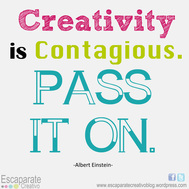 This goes out with a grateful nod to Ken Danford the founder of North Star: Self-Directed Learning for Teens and Joel Hammon, the co-founder of Princeton Learning Cooperative for their amazing vision for Liberated Learners, an open source network of learning centers around the world, who are offering innovative and individualized learning opportunities for any youth who would like to take charge of their own education. Within this network of learning centers, all members are encouraged to use the resources developed by the network, as well as producing their own. The potential implications for this dynamic concept are beyond conceiving. The practical, however, are quite simple. We are all working together to create independent centers that will ultimately help kids around the world achieve their goal of becoming self-directed learners. As an example: An exciting new portfolio and transcript software is currently being developed by a team in Ottawa for The Compass Centre and will be made available to the whole network. This will allow every Liberated Learner youth to create a world class portfolio and transcript that can include any project (art, research, music, etc) that they have produced throughout their educational career and share it on-line with any potential employers, college admissions personnel, friends and family members. Each Liberated Learner Center follows a few basic tenants set by Ken. The seven principles he developed serves as our primary philosophy. The other essential ingredient to becoming a member of the network is that our facilities are not schools. We offer many of the staple components that are found in schools, including: classes, tutorials, activities, technological and material resources (books, musical instruments, art supplies and other hands-on project materials, computers, software, etc), guidance, and college prep. We are, however, completely non-compulsory and non-coercive. We do not take daily attendance and we do not adhere to any one curriculum. Each youth member has a completely individualized, personalized, and unique learning plan that is developed together with their learning center mentor and parents based on their particular interests and passions. Some youth know exactly where they are headed and have a basic plan already. Others need the help, suggestions and encouragement from their mentor. Many kids are looking for rigorous classes to fulfill the requirements they know are needed for the field they want to go into, others are looking for the hands-on opportunities that will enrich their love of learning. Some are interested in exploring the community for possible volunteer, apprenticeship, or shadowing opportunities. For me the most exciting and distinguishing difference between school and our learning centers is that each student becomes directly connected to the community; the community within the learning center and the community beyond those four walls. The individuals a youth will find at the Center are people who care deeply about their own education and are excited about learning; they are empathetic and respectful of everyone around them and are dedicated to making the Learning Center a hospitable, welcoming environment for everyone. The staff at each center acts as a link or bridge to the local community. This in essence creates an infinitely expanding learning environment, that includes: businesses and entrepreneurs, colleges and universities, civic entities (libraries, law enforcement, fire departments, courts, etc.), museums, and the natural environment. Each youth has the opportunity to engage in internships or apprenticeships, shadowing or volunteer opportunities, auditing college classes, as well as one time visits to sites throughout the community. Each Center also encourages connections to local experts, college students, professionals, and lay people by inviting them to teach a class or tutorial at the Center. The legal mechanism for youth who want to take advantage of all we have to offer and are excited about becoming members of our Centers is to file homeschool documentation according to their State or Province. Each Center provides varying levels of facilitation to complete those requirements. At DRC the process is very hands-on, the staff meets with each youth to write the Individualized Home Instruction Plan (IHIP) and Quarterly Progress Reports. Deep Root Center for Self-Directed Learning is not anti-school or anti-education, we are, in fact, pro-learning, pro-exploration, pro-discovery, pro-open mind, pro-challenge, and pro-information gathering. DRC promotes all of the above by providing a safe, open, caring, and nurturing environment, where students are encouraged and supported to create challenging learning and life plans that are based on their own personal real world interests, passions, and goals. Because as this tagline, developed by WayPoint in Nova Scotia and adapted by DRC, sums up quite nicely. Deep Root Center is --- A personalized education: In the real world, for real kids. |
|
© 2024 Whole Learners, Inc. 501(c)3
Deep Root Center
48 Riverside Drive, Canton, NY 13617
315*323*1435/[email protected]
Deep Root Center
48 Riverside Drive, Canton, NY 13617
315*323*1435/[email protected]
